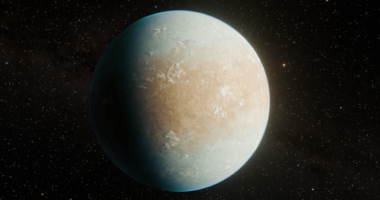Share this @internewscast.com
“Make sure the grill is super-hot so the fish doesn’t stick,” he advised.

For Brisbane-based chef Chris Jordan, food goes beyond mere sustenance — it’s a conduit for culture, connection, and identity. Source: SBS / Jesmine Cheong
A legacy of native flavours
“Using native ingredients can also help to combat climate change.”

Koori chef Chris Jordan teaches young trainees how to prepare traditional native foods using bush ingredients. Source: SBS / Jesmine Cheong
Sharing Jordan’s perspective, Dr Francis Wyld, who teaches Aboriginal studies at the University of South Australia, said bush foods offer many environmental advantages.
Jordan buys bush food and ingredients from local growers, with the help of Food Connect Shed in Brisbane.

Food Connect Shed CEO Robert Pekin stated that his long-term goal is to introduce First Nations food into the mainstream Australian diet. Source: SBS / Jesmine Cheong
The hub’s CEO, Robert Pekin, said the shed is owned by approximately 540 people and most are local residents.
“And the biggest reason for me getting sober was meeting Aunty Dale. She has been in the bush food industry for 35 years and is an amazing chef, an amazing educator and someone who is passing the torch with her education.”

Aunty Dale Chapman is an award-winning chef based in Queensland’s Sunshine Coast. Source: SBS / Sandra Fulloon
Chapman, who was born at Dirranbandi in south-west Queensland on Yuwaalaraay and Kooma tribal lands, celebrates native foods in her cooking.
She said Jordan has elevated the use of native ingredients, and his dedication to sharing his knowledge with young people is vital to preserving the Indigenous food legacy.
Mentoring through food
“It is amazing in my lifetime I have seen that shift, and now my extended family are so proud of who they are.”

Chris Jordan (left) as a young man with his mum and sister near Denman, NSW. Source: Supplied / Chris Jordan
Jordan named his catering business in memory of his father Joseph, a refugee from former Yugoslavia who died when he was a baby.
“It was his favourite song by Bob Marley, so I guess it’s a message of positivity in our family.”

Chris Jordan’s father, Joseph, arrived in Australia in 1950. Source: Supplied / Chris Jordan
A ‘powerful’ journey of rediscovery and connection
“And let’s face it, it is our birthright and we should know how to use, how to sustain, how to thrive using First Nations foods.”

Dylan Kerslake works as an apprentice chef in Brisbane. Source: SBS / Jesmine Cheong
Wiradjuri man Dylan Kerslake is one of Jordan’s mentees and works as an apprentice at a high-end Brisbane restaurant











